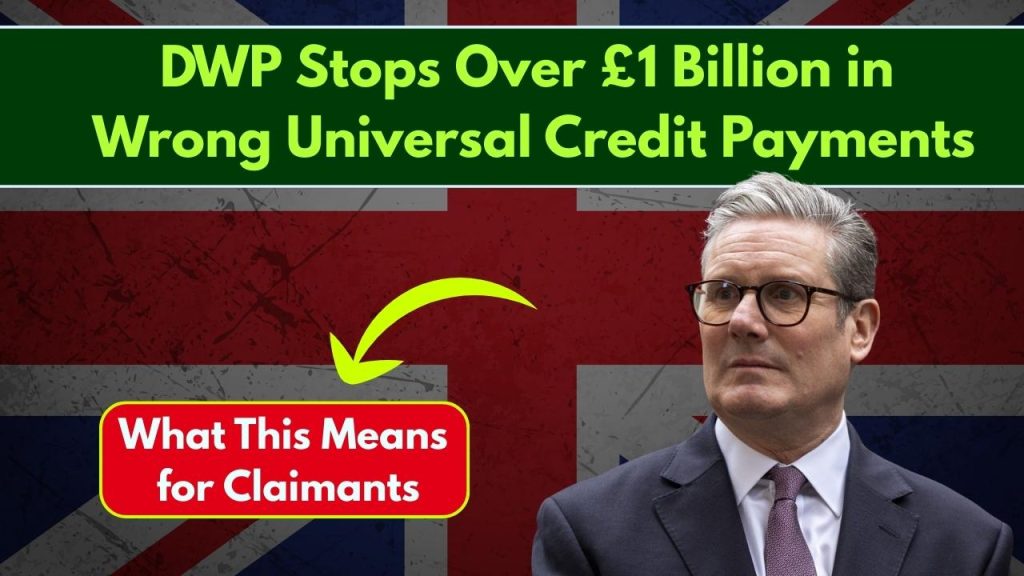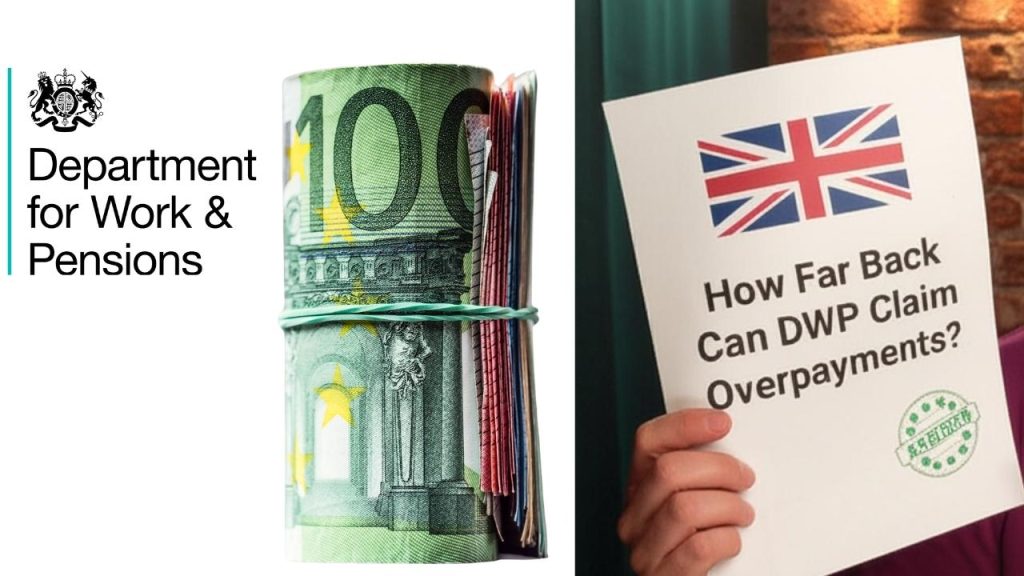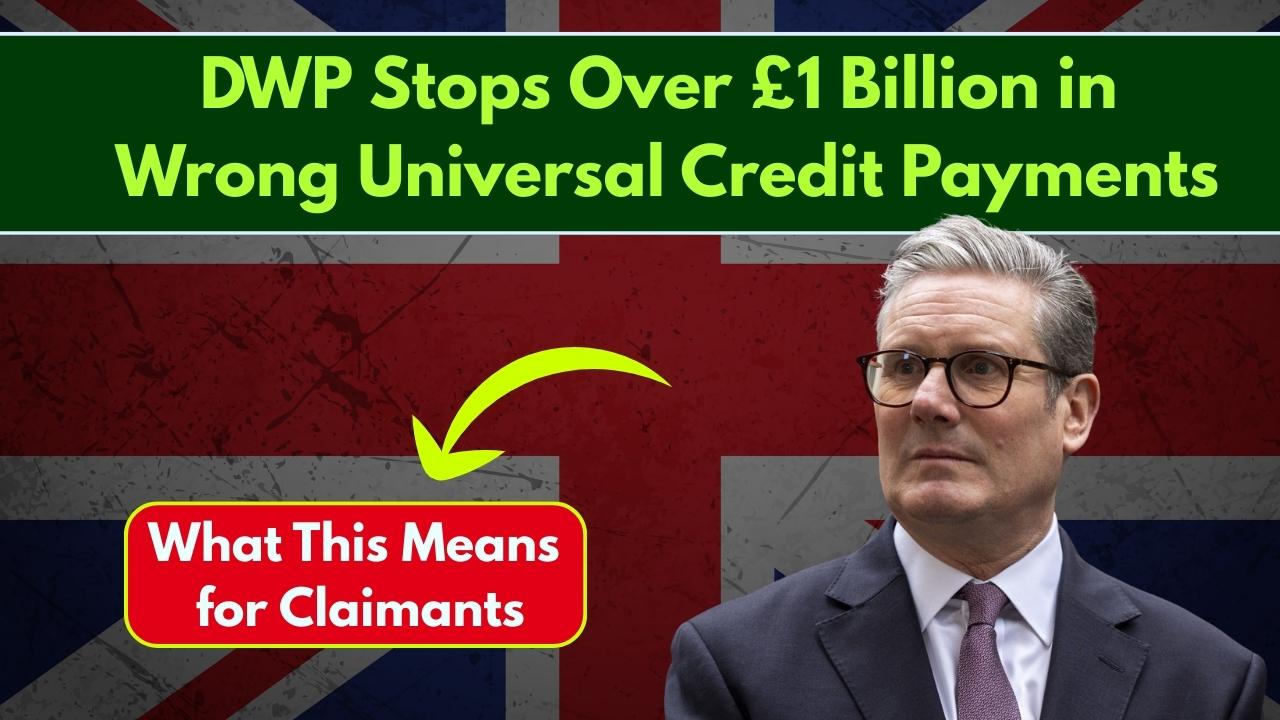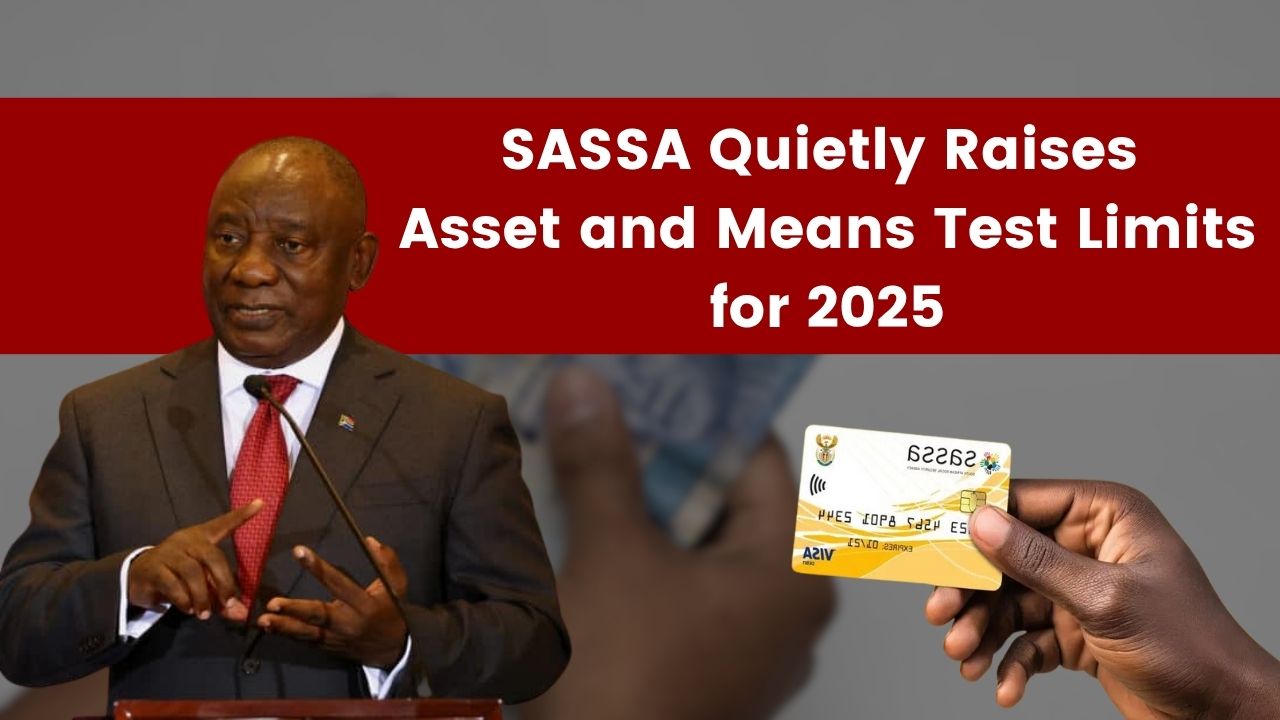The Department for Work and Pensions (DWP) has recently announced a major achievement: it has stopped more than £1 billion in incorrect Universal Credit (UC) payments. This action highlights the government’s ongoing efforts to reduce fraud, error, and waste within the welfare system. But what does this mean for claimants? How could these changes impact your Universal Credit payments? This article breaks down these complex issues into clear, easy-to-understand terms while offering practical advice grounded in the latest official data.

Why Has DWP Stopped Over £1 Billion in Wrong Universal Credit Payments?
Universal Credit is one of the largest welfare programs in the UK, supporting millions of people with living costs. However, like many large systems, it sometimes makes the wrong payments due to incorrect information, errors, or fraud. The DWP’s recent drive, known as the Targeted Case Review (TCR) programme, has significantly intensified efforts to identify and stop these incorrect payments before they result in costly debts for both the government and claimants.
Since July 2024, the DWP has reviewed over one million Universal Credit claims, recovering and preventing more than £1 billion in incorrect payments. The number of staff working on these reviews has nearly doubled, showing the seriousness of the government’s commitment to maintain the integrity of the welfare system.
DWP Stops Over £1 Billion in Wrong Universal Credit Payments
| Topic | Details |
|---|---|
| Amount Stopped | Over £1 billion in incorrect Universal Credit payments stopped or recovered |
| Number of Claims Reviewed | Over 1 million reviews conducted since July 2024 |
| Staffing | Nearly 6,000 staff working on targeted case reviews |
| Max Deduction for Overpayment Repayment | 15% of the standard Universal Credit allowance can be deducted monthly unless adjusted by specific circumstances |
| Overpayment Recovery Options | Deductions from benefits, wages, court orders, and payment plans |
| Official Guidance | See DWP Universal Credit Information |
The DWP’s stopping of over £1 billion in incorrect Universal Credit payments reflects an important step towards protecting public funds and supporting claimants to avoid debt. While this initiative helps ensure the system is fair and accurate, it also underscores the importance of claimants keeping their information up to date and understanding their rights and responsibilities.
If you receive Universal Credit, stay informed and proactive. Respond to DWP communications and seek advice when needed to navigate overpayments smoothly. With clear guidance and supportive processes, the Universal Credit system can work effectively for both claimants and the government.
Understanding Overpayments: What Are They?
An overpayment happens when a claimant receives more Universal Credit than they are legally entitled to. Overpayments can happen for various reasons:
- Changes in income or household circumstances that are not reported in time
- Errors in calculation or processing by the DWP
- Fraudulent claims or misinformation

While some overpayments are honest mistakes, others may be due to intentional deception. However, the DWP treats all overpayments seriously as they impact public finances and can cause hardship to claimants if not handled properly.
How Does the DWP Identify and Stop Wrong Payments?
The DWP uses the Targeted Case Review (TCR) programme to review claims proactively before payments become long-term overpayments. This involves:
- Checking the claimant’s information and eligibility
- Requesting supporting documents like proof of income or housing status
- Cross-checking data with other government departments
- Interviewing claimants if necessary
This focused review system has helped catch overpayments early, saving the government money and helping claimants avoid building up unmanageable debt.
What Happens If You’re Found to Have Been Overpaid?
If an overpayment is identified, several steps follow:
1. Notification
You will be notified about the overpayment through your Universal Credit online journal or by letter. The notification will explain:
- The reason for the overpayment
- The amount overpaid
- Your right to ask for a reconsideration or appeal
2. Repayment Arrangements
The DWP can recover overpayments in several ways:
- Deductions from Universal Credit payments: Usually up to 15% of your standard allowance can be deducted monthly. This percentage may be adjusted based on your income or if the overpayment was caused by fraud.
- Deductions from other benefits or wages: Recovery can come from other benefits or payment through wages if you are employed.
- Negotiate repayment plans: If deductions cause hardship, you can negotiate with the DWP for manageable payment plans.
- Court orders: In severe cases, the DWP may seek legal action to recover debts.
Importantly, the DWP is required not to reduce your Universal Credit payment below 1p per assessment period after deductions, ensuring you are not left with nothing.
What Are Your Rights?
You have the right to challenge any overpayment decision:
- Mandatory reconsideration: You can ask the DWP to review the decision if you disagree, within one month and one day from receiving the decision.
- Appeal: If you remain unhappy after reconsideration, you can appeal through the courts within one calendar month.
Until the reconsideration or appeal process is complete, deductions may continue but can be suspended in specific cases.
Practical Tips for Claimants
Keep Your Information Up to Date
Accurately report any changes in your income, household, or circumstances as soon as possible to avoid unintentional overpayments.
Respond Promptly to DWP Communications
If the DWP requests documents or information during a review or following an overpayment notice, respond quickly to prevent payment delays or account suspensions.
Seek Advice if You Struggle with Repayments
If deductions from your benefits make it difficult to manage your finances, contact support organizations such as Citizens Advice or Turn2Us for free advice and assistance.
Understand Deductions Limits
Be aware that the government’s maximum monthly deduction for Universal Credit overpayments is normally 15% of your standard allowance, which is designed to limit financial hardship.
Addressing Concerns About Fairness
Recent reports have highlighted concerns about the hardship caused by automatic and sometimes steep deductions for overpayment repayments, especially for vulnerable claimants with mental health conditions. Critics urge the government to adopt more flexible and supportive approaches for repayment plans, similar to commercial debt recovery practices, ensuring claimants aren’t pushed into financial crisis.
Extra £909 a Month for Disabled Brits — Full DWP Eligibility Criteria Revealed
DWP Bank Holiday Payment Shake-Up: Who’s Getting Paid Early in August 2025?
FAQs About DWP Stops Over £1 Billion in Wrong Universal Credit Payments
What is Universal Credit overpayment?
It is when you receive more UC money than you are entitled to, due to errors, changes in circumstances, or fraud.
How much can DWP deduct from my Universal Credit for overpayments?
Up to 15% of your standard UC allowance monthly, though this can vary if you have income or if fraud is involved.
Can I appeal a decision about an overpayment?
Yes, you can request a mandatory reconsideration and, if still dissatisfied, appeal to a tribunal or court.
What happens if I don’t repay an overpayment?
The DWP can recover money through deductions, wage garnishments, or legal means. Ignoring the debt can lead to further action.
What support is available if I struggle with repayments?
You can contact charitable organizations like Citizens Advice or Turn2Us, and request a hardship consideration from the DWP.





